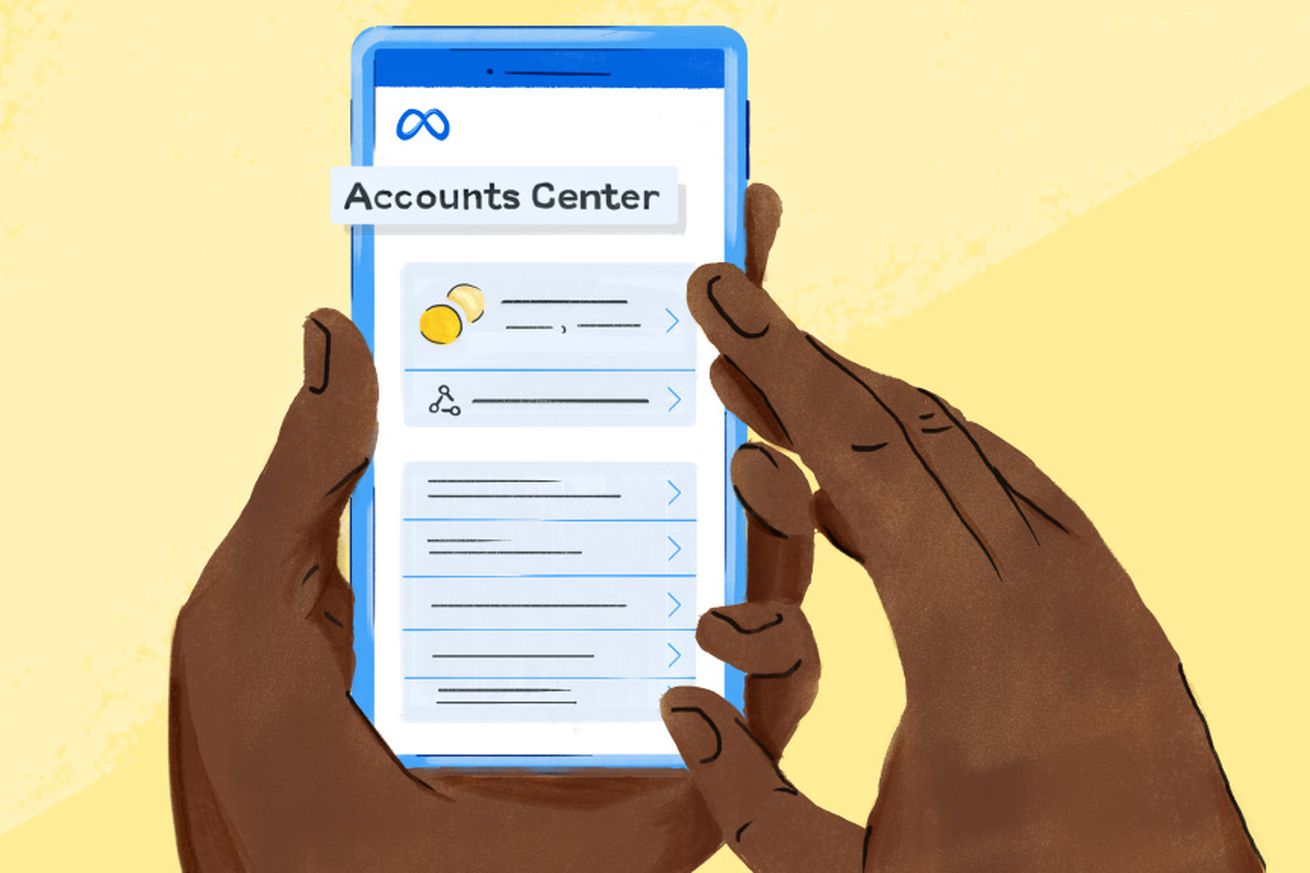Image: Meta
EU users will be able to unlink their Instagram and Facebook accounts, as well as other Meta services ahead of the bloc’s new Digital Markets Act (DMA) coming into force in March, the company has announced. The changes will apply in the European Union, European Economic Area, and Switzerland, and notifications informing users of the change will appear in the coming weeks.
The changes mean that EU users will be able to use many of Meta’s services without their information being shared between them. People will be able to use Facebook Messenger as a stand-alone service without a Facebook account, for example, and if they’ve previously linked their Facebook and Instagram accounts they’ll be able to unlink them. (Meta’s help page notes that linking accounts like this is used for features like targeting ads, personalizing content recommendations, and sharing posts).
Facebook Marketplace and Facebook Gaming users will also be able to use these services without them drawing information from their main Facebook accounts, but in both cases Meta says this will lead to reduced functionality. If you use Marketplace without it using your Facebook information, for example, you’ll have to communicate with buyers and sellers over email rather than Facebook Messenger. Facebook Gaming users will be limited to single-player games if they unlink their Facebook information.
Meta’s news follows a similar announcement from Google, which said earlier this month that it would let users stop the sharing of data between services like Search, Youtube, Google Maps, and Chrome. In both cases the changes are the result of the DMA, which fully takes effect on March 6th. Meta and Google’s holding company Alphabet were among the list of six companies designated as “gatekeepers” under the DMA last September.
Today’s announcement comes after Meta also said in early December that it would no longer let Instagram and Facebook users send messages across services anywhere in the world, although in that case the company didn’t cite the DMA as the reason for the change. In November it also introduced an ad-free paid subscription option for Facebook and Instagram in the EU, citing unspecified regulation changes.
In addition to regulating how gatekeepers can share data between services, the DMA includes a broad range of rules that are designed to improve competition and level the playing field for businesses that rely on gatekeepers to offer their services. Other major changes that are expected in the EU as a result of the DMA include messaging services like WhatsApp and Facebook Messenger being made interoperable with competitors, and Apple being forced to open up iOS to sideloading.



![[CITYPNG.COM]White Google Play PlayStore Logo – 1500×1500](https://startupnews.fyi/wp-content/uploads/2025/08/CITYPNG.COMWhite-Google-Play-PlayStore-Logo-1500x1500-1-630x630.png)